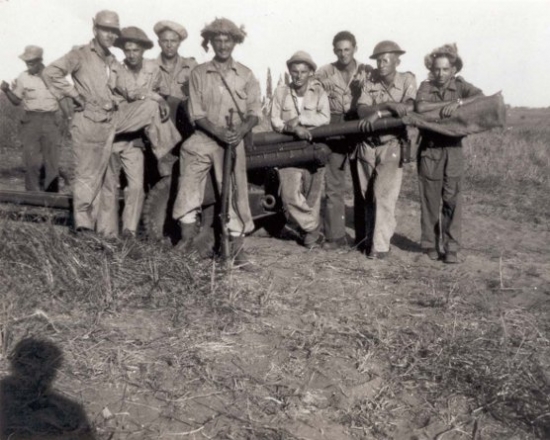
Lt to rt: Zeev Cohen, Jack Friedman, Elliott Katzenellenbogen, Gerald Becker, Eli Robin, Yehuda Sasksner, Sid Langbart, Josie Shlain
The four-day armistice was over. I was back in Tel-Litwinski, ready to begin my army career. How long was our training period? One week? Two weeks? There wasn’t time for more. We had to be on our way.
Little did we realize the commotion we would cause. We were scheduled as an artillery unit, our trucks towing the large heavy guns.
True, it was sixty years ago, but as vividly as ever I remember our trip up north. As we drove through the town of Afula, people came running out of their houses- women and children. All the men were on active duty. They ran after us, touched the guns, kissed them. They had never seen anything like this. Israel was armed. They held out their Lebenia, their Chalot. What else was there to offer?
We were stationed up north, close to the Syrian border. Trenches were dug as fast as possible. The Syrians wasted no time in shelling us. What we couldn’t understand was how they knew our exact location - until we noticed that each time after firing our first shells, a mirror up on the hill in a village behind us was sending out signals.
Our nearest water supply was in Rosh Pina. Our bedding was on the floor of the trench. There was no shade against the glaring sun. Not a soul complained.
As short as the period was, many memorable incidents remain. I don’t remember what was on the menu but I do remember that I was rushed off to hospital in Rosh Pina with an acute attack of diarrhea. It turned out that I wasn’t alone.
One day, way up north, in the middle of the war, a telegram was delivered to me. I had passed my final exams as a chartered accountant in South Africa. At the time, it didn’t seem to be of great importance. But in later years I found it to be of significant relevance.
Up north, near the Syrian border we were close to Kibbutz Maayan Baruch. Despite all the action taking place, a few of us found an excuse to make our way to visit the kibbutz. School friends, comrades from the Zionist movement, founders of this wonderful kibbutz stationed almost on the Syrian border were living in trenches, protecting us.
It wasn’t long before the army realized that we weren’t using artillery. These were anti-aircraft guns. Our unit was disbanded and I found myself in a camp near Haifa waiting for my next posting. On guard duty at night, it wasn’t the enemy I feared, but the howling, hungry wolves which approached us right up to the fence. They wanted to share our rations.
Within a short time I was on my way to join a unit in Sarafand.
Early on, the army reached a wise decision. There wasn’t time for ulpan, for studying Hebrew, so the units were formed with the “same-speaking” language. I found myself in The Democratic Fourth Troop, First Anti Tank 421.
We had Americans, English, South Africans, Australians, Canadians and even a few New Zealanders. Our commanding officer was an American, our second-in-command was an Englishman and our Sergeant Major was a South African.
This was one of the most decisive steps in my life. I was greeted by my neighbor, classmate Freddy Salant. Friendships and bonding were formed, many of which have lasted to this day. This was my true integration. Together, many of us followed the same path that exists to this day, not only with us, but also with our children and grandchildren.
Our unit was involved in many actions, including Iraq Suweidan Police Station and Faluja Hill 113. We also saw action in the north, Iraq El Manshiya. An entire book has been written on the 4th Anti-tank troop and its participation in the War of Independence. My tales are personal anecdotes.
Shortly after joining the unit, I was called in by the medical center. Two South African doctors were in charge. They had traced my original medical enrollment and informed me that according to this I had no business to be in the army. They gave me a night to think it over. I rushed to Tel-Aviv to visit a close friend from the movement. He was a psychologist. We spent most of the night yapping. The next morning I informed the doctors that I wished to remain in the army. “Fine,” they said, “but these pages will be destroyed and you can never refer to them.” This was one of the wisest and most positive decisions of my life.
Each of us had a specific function. I was enrolled as welfare officer of the unit. A wonderful advantage was that once a month I made my way to Tel-Aviv to collect the pocket money and mail parcels for all the unit. I didn’t understand why our driver always stopped at a particular army base until I found out that this was a training center for army nurses.
Being a welfare officer didn’t exempt me from war action. On the contrary, as I wasn’t part of any specific team I was available whenever there was any action, irrespective of which team it was.
On one of these occasions I found myself with a team which entered Ramle. While stationed there we organized ourselves so that each day one person could have a day off. On the day that our driver had his leave, I drove our half-track the kilometer and a half to the army canteen. On one such day our team was changed and a group of Polish-speaking soldiers took over.
What were we to do? Our team sergeant would face extremely serious consequences if it was known that out team was without a driver. And so I found myself driving this heavy half-track with its guns and Polish team through the hills surrounding Jerusalem.
As the only team with heavy guns we were in action all the time – that is, until the motor broke down. As the half-track was towed into the garage our professional driver returned. He had enjoyed two weeks off while the motor was being repaired.
Israel held out against all the Arab armies. We were winning the war, and our unit was scheduled to make its way to Eilat.
During our months of action many of us realized that Israel was to be our home. The how, what, which and why we didn’t know. We did know that we wished to remain in Israel.
As I waved goodbye to my mates on their way to Eilat, I turned and made my way to my new duties. I had been chosen to scour the country for additional potential Anglo-Saxon immigrants and to meet with the responsible personnel to find a path for us. That story follows in Chapter 3.
 THE RABBI’S DAUGHTER - A Review
THE RABBI’S DAUGHTER - A Review 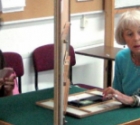 Spotlight on .....Roz Brodie
Spotlight on .....Roz Brodie 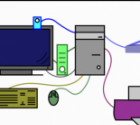 ESRA COMPUTER CLUB
ESRA COMPUTER CLUB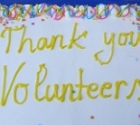 A new website in English - on Volunteering - Launched in Israel
A new website in English - on Volunteering - Launched in Israel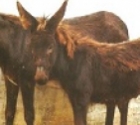 Help Needed for Abused Horses and Donkeys
Help Needed for Abused Horses and Donkeys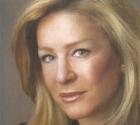 Heather's Heseg
Heather's Heseg